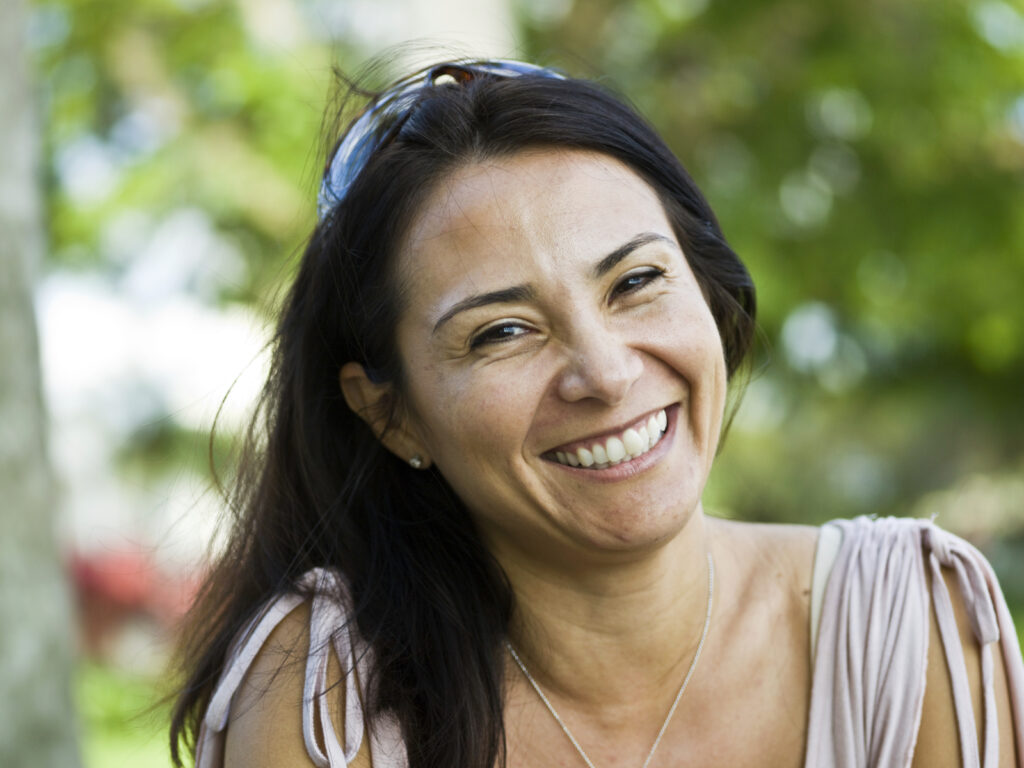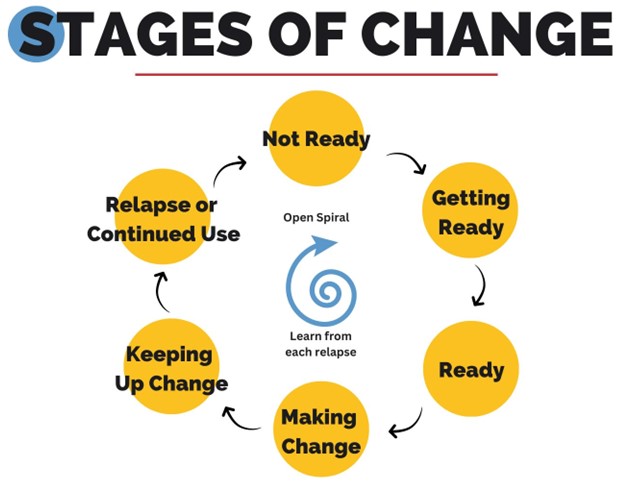
We don’t change in an instant. Think back to a change you made in your life—big or small. Did you make that change the moment you realized there was a problem? Possibly. But more likely, you went through a process of realization, planning, and then action. How people make changes has been studied, and the conclusion? Most changes are made in distinct stages.
Stages of Change
The Stages of Change account for the fact that we need to realize there is a problem in the first place, and then usually think about our situation for some amount of time before we plan to address it. The action and maintenance phases of our change continuum may be brief, as when buying a new appliance, or may last a lifetime, such as when we lose weight. Some people move through these stages in order, while other revert to earlier stages from later ones.

Addiction Disorders & Change
The Stages of Change help us better understand how people with a substance use or gambling disorder get well. It’s unlikely that someone who isn’t ready to change would jump right to making and maintaining a big change like addiction recovery. It’s more likely that they need loved ones to set good boundaries, education about their illness, and patient professionals to help them move toward healthy decisions. The goal is not to go straight from having a problem to solving it, but rather to progress from one stage to another.
What to Expect from Treatment & Recovery
Whether you are experiencing addiction or love someone who is, it’s important to know that recovery is a process—not an event. Treatment offers critical skills and experiences but does not equal recovery. Treatment may include:
- Withdrawal management (detox)
- Education
- Group counseling
- Individual counseling
- Medication
- Family sessions
In contrast, this month’s guest speaker, therapist Maricelle Sheldon, offers this definition of recovery:
Recovery is the willingness to hope for something different, along with making active choices to move away from addictive behaviors.
Maricelle Sheldon, CAADC
The longer one engages in a recovery process, the more successful they will be. Addiction is an illness with a good prognosis, and recovery is the norm.
Finding the Right Support
Since change takes time and the stakes are high—addiction can be fatal if not addressed—asking for help navigating the system is important. Compass Mark’s Information & Referral is a free and confidential service offering thoughtful, individualized attention. Our team matches people with addiction disorders and their loved ones with many types of treatment and recovery supports, including free or low-cost options.
Reach out Monday through Friday between 9AM and 5PM to begin your change process in search of better health. Compass Mark’s Information & Referral Team can be reached at 717-299-2831, info@compassmark.org, or via web chat at www.compassmark.org.
About the Expert

Maricelle Sheldon, MBA, CADC, CPG, RYI is a PCB-certified addictions counselor in the field over 20 years. She received her BA in clinical psychology from Millersville University and her Executive Medical MBA from Alvernia University. She is currently a therapist in private practice in Lancaster, PA, and has extensive experience working with people experiencing active substance use and gambling disorders, as well as their families. Another focus of her practice is supporting individuals in long-term recovery who wish to dive deeper into issues around self-esteem, relationships, spiritual development, and their families of origin.
Maricelle offers interactive trainings for local organizations in an effort to educate college students, professionals, older adults, and other members of the public about addiction, treatment, and recovery in a supportive manner.
She has extensive experience facilitating workshops and retreats utilizing experiential techniques to engage participants and yield sustainable change. She is a registered yoga instructor offering classes to introduce others about holistic healing, yoga, and chair yoga. Maricelle identifies as a person in long-term recovery and is committed to offering hope to those in need.
This post was originally published by WGAL TV 8 on www.wgal.com and sponsored by Donegal Insurance Group as part of the Mental Health Moment campaign. We thank WGAL TV 8 and Donegal Insurance Group for their support of prevention and mental wellbeing in our region.